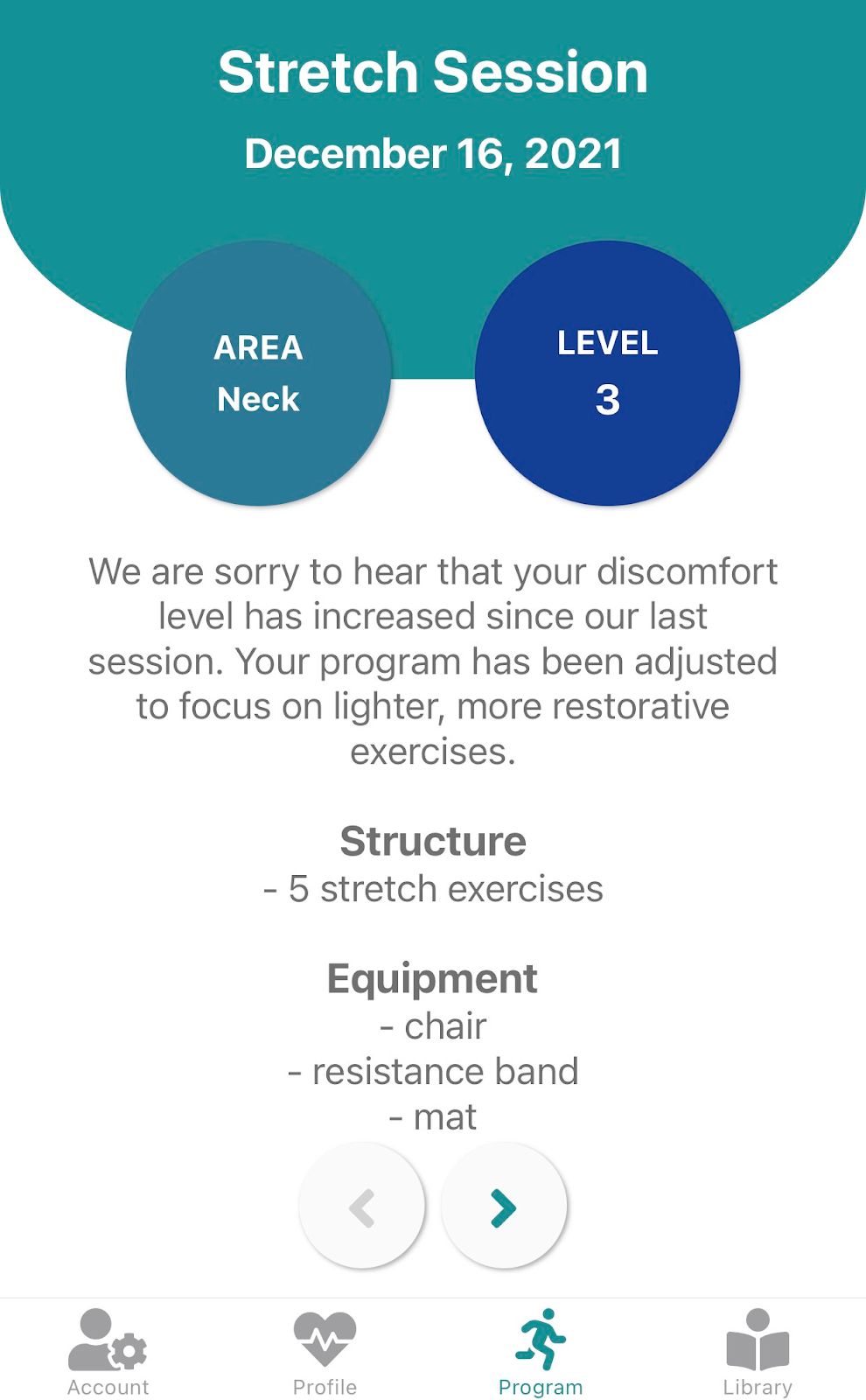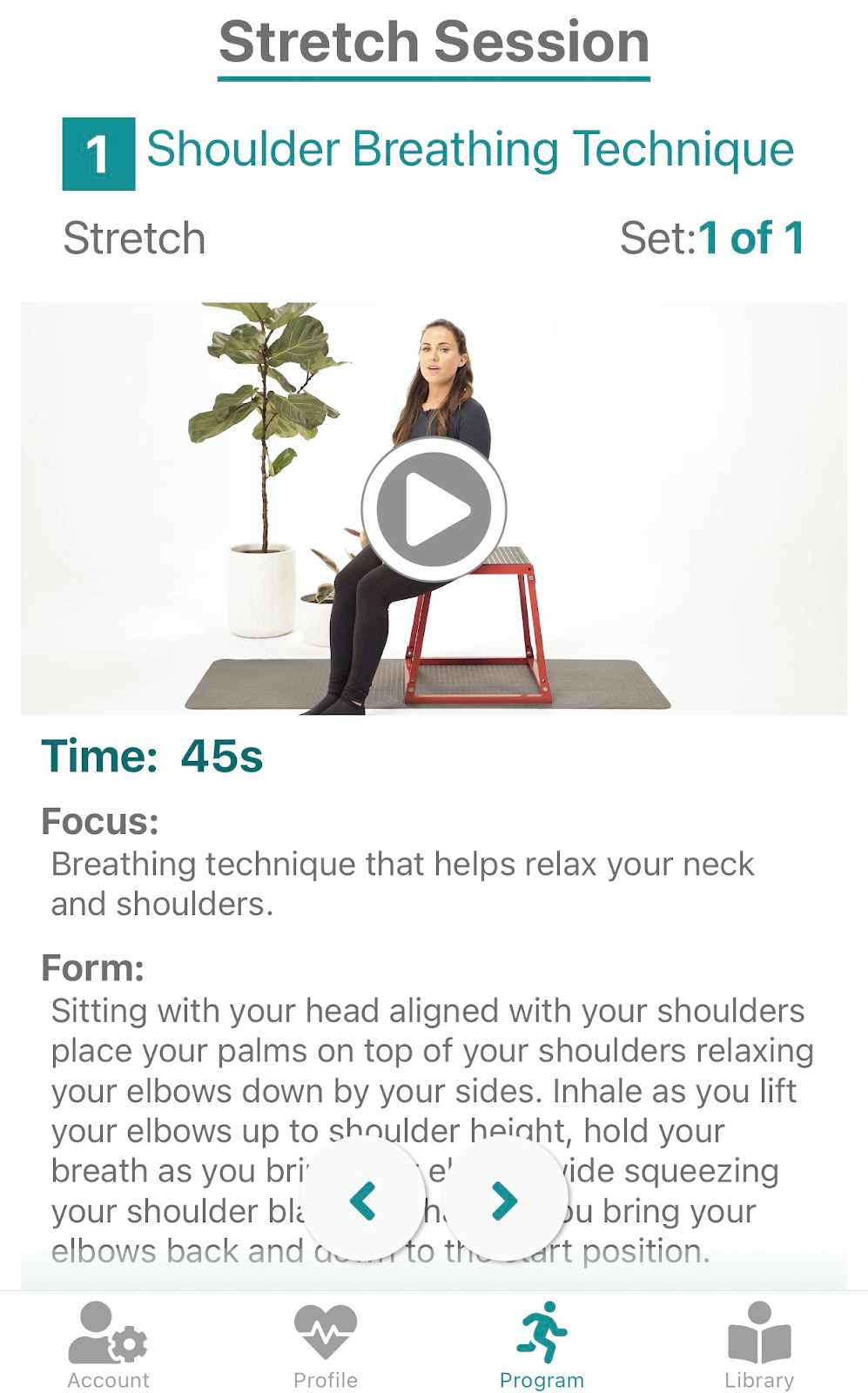
A few months ago, I broke my left foot while playing basketball at an outdoor court in south Berkeley. With 5 bone fractures, I immediately knew the road to recovery would be long — and unknown.
Instead of relying on my usual routines and habits, I suddenly had to develop new systems towards healing so I could walk normally again. It’s been a journey of growth and learning, and I’m still not where I was pre-injury; but I’ve picked up some tools and an interest in holistic wellness that I’m grateful for along the way.
Among these discoveries, Pancea—a local startup that a friend mentioned to me, and whose wife, Justine Luong, helped to develop—has been a fresh revelation. It’s not something I think I would’ve considered as an active millennial male, but with extra time and a need to rehabilitate, I downloaded the free app.
I learned that the tool was created by a woman-majority health tech group. As someone who likes to support local ventures, especially when they are created by and for marginalized people, I took an interest.
It turns out it’s the first phone app to deliver the consultation of a Corrective Exercise Specialist (CES) as an automated program design. What does that mean? I couldn’t tell you exactly, so I reached out to speak with the group’s founding members, who illuminated their mission with me.
“Most apps include pre-determined programs based purely on symptom location,” Ashley Hunt, one of the co-founders and CEO, says. “So let’s say someone has neck discomfort, these programs would give you stretches and exercises for your neck. In person, that is not how a specialist creates corrective exercise and wellbeing programs. In person, a CES would complete a consultation that gets to know the individual and contributing factors to their symptoms such as stress levels, nutrition, sleep, and trauma history. This creates a baseline for the program focus, but each day symptoms can change and so should your program. Pancea has taken these steps and automated that process so that more individuals can get this type of specialist level care at an affordable rate.”

The app takes a personalized approach to a process that has often become overly simplified by technology. Pancea is made to customize the user’s needs, particularly when it comes to chronic, musculoskeletal pains, which are commonly experienced in a person’s neck, shoulder, lower back, and knee.
Co-founder, Luong, has spent over 10 years working in the health and wellness field, with a Bachelor of Science in Kinesiology and an emphasis in Neuromuscular Science. She is also a certified Corrective Exercise Specialist. She says her passion for providing care for others and alleviating chronic pain comes from her experience undergoing brain surgery. Through her healing and rehabilitation process, she was inspired to help individuals live more “limitless lives.” Her passion is evident in our interactions.
She introduced me to her business partner, Hunt, who is equally experienced and driven from a personal standpoint to provide meaningful healthcare in a fresh form. Hunt is vocal about the importance of women leading the way in tech, a field that is notoriously lacking in equal gender representation.
“Less than 2% of all [venture capital] money goes to female founders,” Hunt says. “Although I have witnessed the bias in fundraising first hand, we are mission-driven and want to inspire other female entrepreneurs and women in tech so we will continue to push forward.”
The egregious lack of representation and funding for women in tech can make it increasingly difficult to find success in the field. But that isn’t stopping Luong and Hunt, who have worked together for the past eight years in providing health services to San Franciscans.
The company’s name is a modern rendition of “Panacea,” the Greek goddess of remedy who is able to cure all diseases and prolong life. In hearing from the founders, they do not believe there is a single solution for chronic pain. Rather, they believe curing our body’s pains will come from multiple specialties combined with technology to get to the root of each person’s complex issues.
To be clear, the app is not made for injuries as severe as mine. It’s intended for more regular, everyday muscle imbalances created from repetitive tasks and basic recreations–like working from home and craning your neck at a screen. They focus on alleviating that feeling of soreness and tender pain that lingers after a long workday, which every working American adult should be sorely familiar with.
When I downloaded the app, I began to use it as a supplemental source of self-care. Unlike visiting my orthopedist or physical therapist—who has been overbooked and overworked — Pancea is an easy, stressless way to focus on other parts of my body’s healing with quick exercises and meditation routines that are targeted towards how I’m feeling that day.

“A big part of our mission is to de-stigmatize chronic pain and what goes behind it. Chronic pain is complex. It is not just physical and it is not just mental. It is a combination of many factors. Our physical structure, muscles, stress, nutrition, trauma, and sleep can all impact chronic conditions and pain. We hope we can help democratize specialist knowledge and be a resource for many that cannot afford ongoing specialist care; as we believe pain relief should not be a privilege,” Hunt says.
According to the company, “Pancea’s founding team has their own experience with chronic pain and injuries and were frustrated at how many appointments, steps, and how costly these short term solutions are.” In a world of healthcare that involves many bureaucratic (and expensive) steps just in order to spend 10–15 minutes with your doctor, this app is created to reduce the gap between medical relief and the users.
Pancea hopes that those with MSK pain can access the guidance and care they need while also lessening the overburdened healthcare system in which doctors are often stressed out, and unable to provide any intimate one-on-one care without patients having to pay all types of mountainous bills.
It’s not a silver bullet to your health issues, but as I’ve learned over the past few months, there is no single solution or method to support your body’s needs. It takes a variety of intentional and frequent commitments to address your different areas of health. Pancea just happens to be one of the more accessible, innovative, and convenient forms of self-wellness that I’ve come across. It’s about a long-term approach and believing that every step is equally crucial from day to day in reaching your goals and restoring your best self.
“Our bodies are machines. We break down, accumulate wear and tear,” says Luong. “Many individuals believe that they would live with these symptoms forever and it was from getting older. But we can heal and get better.”
Pancea Access:
Apple: https://lnkd.in/gpJGHkba
Google: https://lnkd.in/gqxsJMmU
Access code: painrelief







